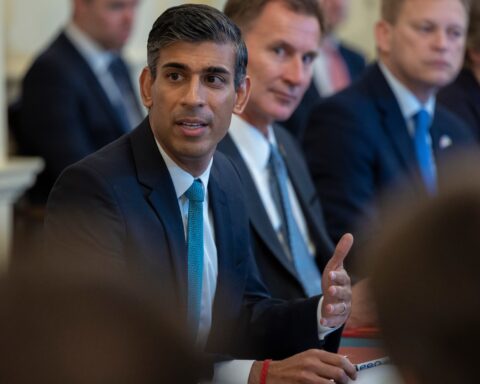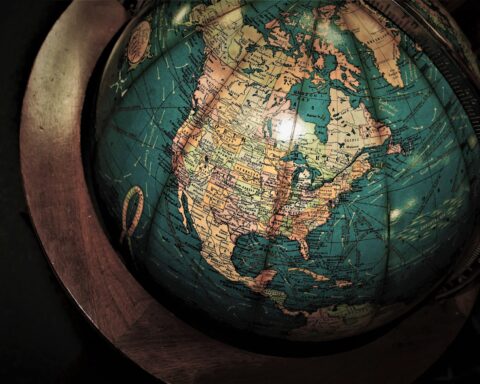There is an egregious crisis brewing at the United States-Mexico border, according to US officials. Thousands of migrants – mostly families and unaccompanied kids are seeking to gate crash. Customs and Border Protection Commissioner Kevin McAleenan, has been quoted by the BBC as saying it is “a matter of time” before tragedy strikes at one of their facilities.
Last week the Pentagon authorized the transfer of $1 billion in funds to begin construction of a new wall, after President Donald Trump declared a national emergency to bypass Congress. “The US will not be a migrant camp … It’s not going to happen on my watch,” Trump said at the White House last year. In September, speaking at the United Nations General Assembly, he unabashedly dumped the global cooperation idea. He told heads of state and government officials that his country rejects the ideology of globalism.
A sweeping view of the political landscape emerging in Europe, the US and Canada makes it worrying to think of how fast and furiously the ideas of bigots and demagogues are beginning to influence voter electorates in the West to create isolated havens settled by pure Aryan races with a sprinkling of white supremacists. Keep in mind, the two World Wars were fought precisely for that nirvana. These are scary times, although an impassioned insouciance lingers.
What signs do we see of these scary times?
The Brexit referendum on 23 June 2016, in which almost sixty percent of the participating UK electorate voted to leave the EU, overthrowing Britain’s relationship with its European neighbours, was probably the first open demonstration of irritation festering within rightwing western electorates at the rapidly growing migration of people to their shores.
In New Zealand, the Christchurch mosque shootings on 15 March by a white supremacist who killed 50 people and injured 50 others is shocking to say the least. The incident drew parallels with the bestial shooting on the island of Utøya in Norway by Anders Behring Breivik in 2011. In the Netherlands the leader of the Party for Freedom, Geert Wilders, is seeking to ban migrants from Muslim-majority countries and to close mosques, Islamic schools and asylum centres.
The immigration rules in Denmark are among Europe’s toughest. The country allows its police to seize the property of migrants to pay for their upkeep and wants to boost contraception aid to developing countries to “limit the migration pressure.” In June last year, the Austrian government said it would close down seven mosques and expel imams who, it says, are funded by foreign countries.
A rising tide of nationalism is being witnessed across the world and with it we see the totalitarian rogue creeping in. Beginning with the intervention in Ukraine in 2014 and the annexation of Crimea, Vladimir Putin had sowed the seeds for authoritarian rule to germinate in a resurgent Russia.
In China, President Xi Jinping is now empowered to stay in power indefinitely as China removes term limits on the presidency. On June 25 2018, Turkish President Tayyip Erdogan won sweeping new executive powers after his election victory, his main rival, Muharrem Ince of the Republican People’s Party, said at a news conference: “We have now fully adopted a regime of one-man rule.”
There is widespread talk of a democratic erosion in Poland, Hungary and the Philippines, as well, an ultra-nationalist government in India that’s paving the way for a theocratic Hindutva that would alienate Christians, Muslims and other non-Hindu communities.
History will repeat itself. An extremely nationalist ethos, provides fertile ground for the germination of dictators.
A global problem needs a global solution
In a quiet moment, it’s nice to think about how and why this has come to pass and what’s the way out of this quagmire?
The history of conflict on the planet is a narrative of how the marginalized, the plebeian, rank and file masses have turned against the bourgeoisie. So, it’s reasonable to say that the rich and the poor can never co-exist without conflict because profligate societies incite an irascible response from the observer across the border. There must be committed engagement by rich nations with poorer societies because a common future for all, can come with the common responsibility of all.
There is this allegory of the long spoons, a parable attributed to Rabbi Romshishock that makes a subtle point about “common responsibility” and “common future.” Think of diners sitting on opposite sides of a long table on which delectable food waits. The guests at the table have extremely long spoons that make it impossible to scoop up the food into their mouths. So, what does one do? The parable suggests that people on one side of that table have the opportunity to reach out to the others across the table with their resources—their long spoons—so that in feeding one another, all are fed and no one is hungry.
Consider expanding the notional scope of what globalization can do to create a better, safer and just world and be cognizant of the fact that should the richer of the planet choose, instead, to ignore and neglect the others, global poverty will come back to haunt us. There are no “quick fixes” to sorting out the quagmire we are trapped in. Walls will not keep festering anger lying servile within. That anger will explode and breakdown walls.
[bctt tweet=”A sweeping view of the political landscape emerging in Europe, the US and Canada makes it worrying to think of how fast and furiously the ideas of bigots and demagogues are beginning to influence voter electorates in the West.” username=”NewCdnMedia”]A civilized nation cannot turn to actions that dehumanize the marginalized – separating families or unleashing tear gas on children seeking refuge at their borders. A careful examination of what lies at the root of all this trouble might reveal the fact that migration is driven by poverty – the absence of opportunity, the curse of terrorist violence and war primed by sectarian strife and nationalist ambitions that push the plebeian, the marginalized, the rank and file to pile up on boats and take dangerous journeys to Western shores.
The creation of the European Union was a great idea. Similar economic blocs can bring about that change we seek. So, perhaps the intellectual and technological convergence of nation states to elevate the power of literate human capital in developing countries can gradually halt the need to migrate at all, because literacy will open the gates to jobs and jobs will close the gates to poverty.That education and mature literacy is a change-setter, is witnessed in the thousands of make-shift schools that are mushrooming in the developing world this century. These initiatives deserve a shot-in-the-arm. A globalized world can do this.
If we go down that road, it is fair to say that a couple of decades from today, the world will see broad-based literate societies unfolding in economically weaker nation states. That will end the frustration of the plebeian masses, the rank and file and open up opportunities across the southern planet. There are no quick fixes to the torment of our times. The development of literate societies, an overhauling of the nature of our ethos, the sharing of technology and resources with weaker nation states through a sterling globalized culture and the creation of egalitarian societies, may be the only way forward. The stakes are high. The global community needs to give that challenge a shot, before time runs out.
Robin Arthur is a newspaper editor, columnist and author of several books including "Can the Poor Inherit the Earth", an opinion on Third World development paradigms, acclaimed by UNICEF and UNDP. In Canada, he has worked to develop an appreciation for interfaith dialogue and from 2011 to 2016 has staged three very successful spiritual diversity conferences that paved the way for the formation of an Interfaith council in the city of Halifax.




